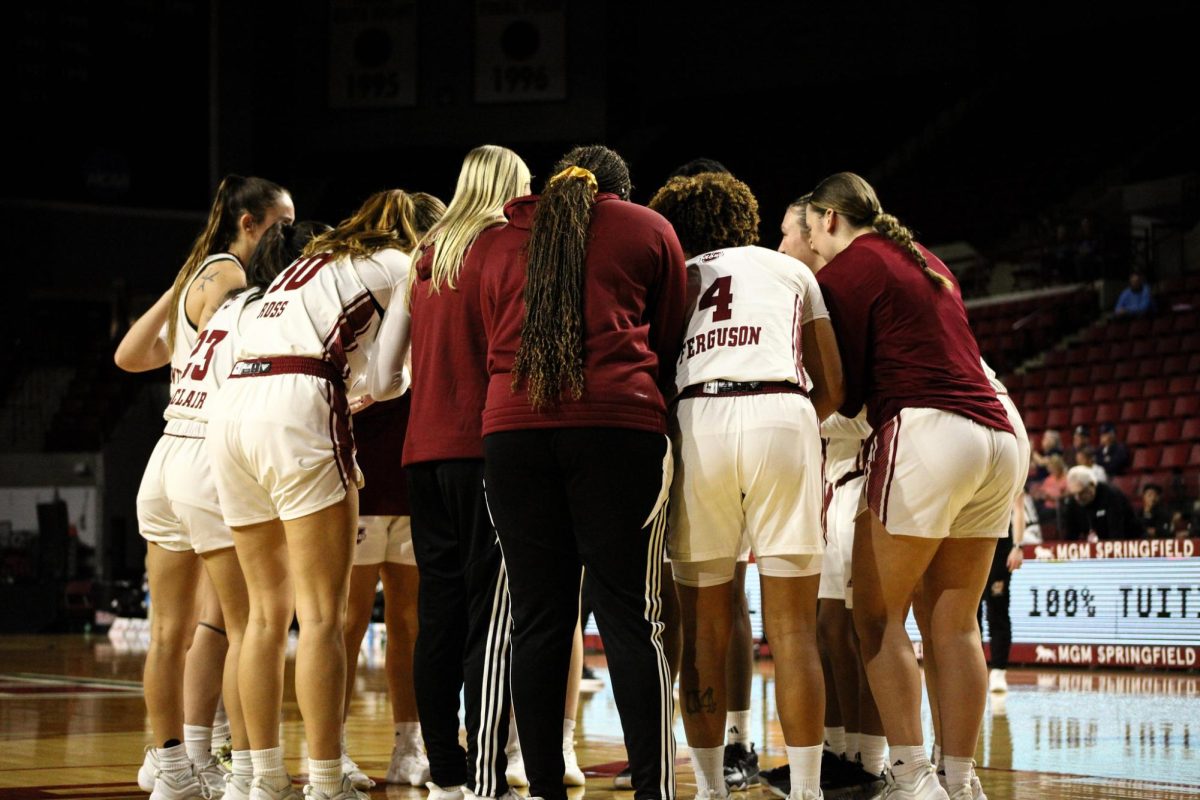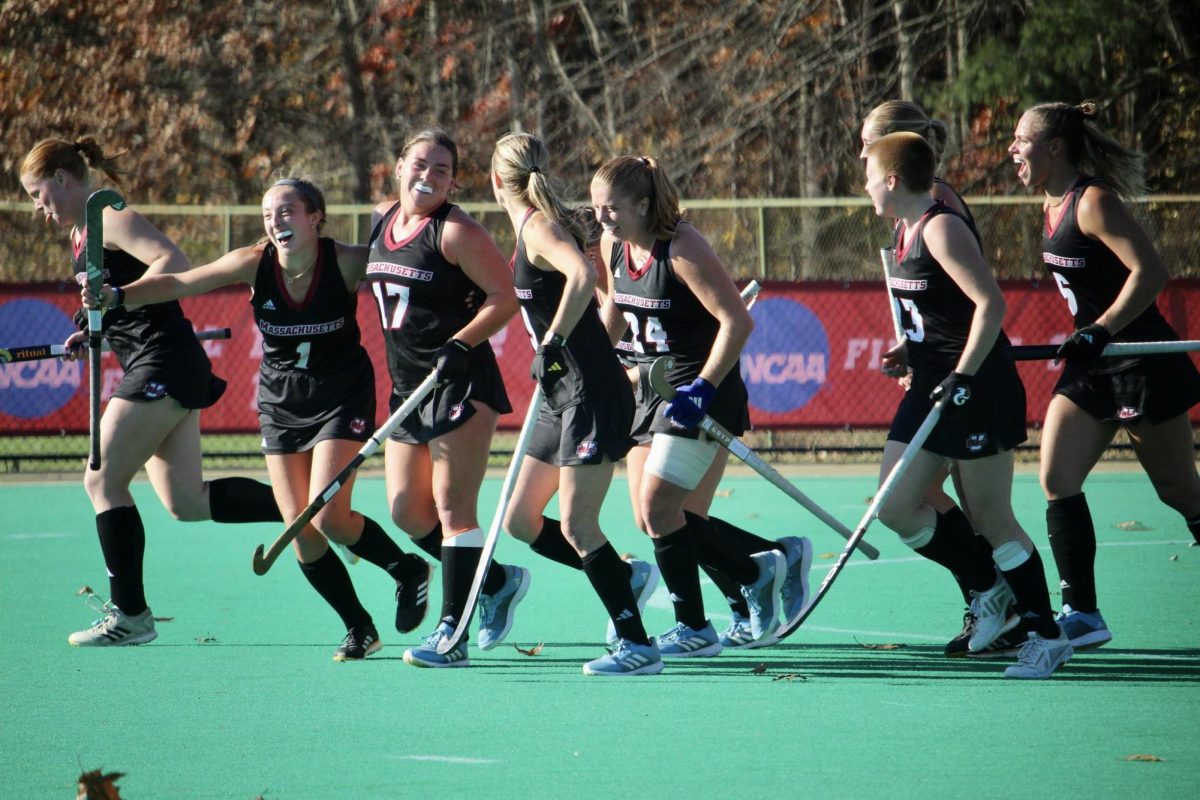 On Election Day, in addition to voting for officials and on ballot initiatives, 5.625 percent of Massachusetts voters will be asked if their representative should support the legalization of marijuana. Amherst is one of the towns where that question will be asked.
On Election Day, in addition to voting for officials and on ballot initiatives, 5.625 percent of Massachusetts voters will be asked if their representative should support the legalization of marijuana. Amherst is one of the towns where that question will be asked.
“It’s not a ballot initiative,” said Adam Freed, secretary of the Cannabis Reform Coalition. “The initiative was what we had with the decriminalization. This will be a public policy question polling areas that were targeted in the hopes that there would be success.
“So if there’s a large amount of support for marijuana legalization or medicalization, then we can hope for some financial backing in a similar sense to what’s happening in California – there are some individuals who will donate funds to a Massachusetts campaign to legalize weed and so our goal is 2012,” Freed added.
The question proposes if marijuana be made similar to alcohol. “Taxed and regulated like alcohol,” Freed said. “People that consumed it would have to be 21, it would have to be purchased in particular stores and areas that are designated for the sale of marijuana.”
Freed said that it is important for marijuana to be in a similar situation to alcohol, both from the perspective of individual rights and from the standpoint of the government getting revenue from taxation instead of spending funds on enforcement and punishment. He said that people should not be going to jail over marijuana consumption and possession.
“The point of alcohol legalization was that individuals should have the choice of whether or not they want to use or consume alcohol and we understand that while this is a potentially deadly substance, people still have the right to make that choice,” Freed said.
“So as a country, as a government, we tax it and we make a great deal of money off it. On the other hand, with marijuana, which in my opinion and many professionals’ opinions, not nearly as toxic as a substance like alcohol, we’d like to have the same sort of system going,” he continued.
Patrick Archbald, University of Massachusetts Police Department Deputy Chief of Administration, agreed that marijuana legalization would free up police manpower and funding for dealing with other crimes. “I’m going to defer to the legislature,” he said. “We enforce the laws they create.”
Freed said that if the public policy question is answered in the affirmative, the next step is to push for legalization in 2012, to register voters, to get voters to go to the polls and informing people about why the CRC believes marijuana should be legalized.
“It’s really important to paint a full perspective for voters,” he said. “Some voters might just say ‘No’ based on certain fundamental reasoning that they have and other voters might be swayed in the other direction and our hope is to sway voters,” said Freed.
He continued, “We know that a lot of students, a lot of individuals in the area, will vote ‘Yes’ for legalization, but there are a lot of people – and this is our target audience – who are going to say ‘No’ just out of a force of habit and we’d like to convince them to say ‘Yes,’ and induce them to have marijuana legalized, to have no more criminal marijuana users or offenders and to have better access outside of the black market for obtaining marijuana in safer means.”
Many of the stereotypes associated with those who use, sell and grow marijuana have proved to be obstacles to the legalization campaign. While the reputable information today is more substantial than many years ago, when films like “Reefer Madness” were presented as being based upon true stories about marijuana users, showing people becoming violent and insane based on usage of the drug, Freed said that some misinformation is still spreading.
“The general trend of the last decade or two has been that individuals who have tried marijuana know that the propaganda against it isn’t true and they’re less likely to believe that propaganda,” Freed said. “DARE was a wildly unsuccessful program.”
The public policy question on marijuana legalization is on the ballot in legislative districts in Middlesex, Dukes, Barnstable, Hampshire, Essex and Franklin counties. A similar question, regarding legalization of marijuana for medical use, will be on the ballot in Hampden, Worcester, Plymouth, Suffolk, Bristol and Norfolk legislative districts.
Matthew Robare can be reached at [email protected].







David Klein • Sep 29, 2010 at 2:54 pm
Way too many people are unjustly punished by the police for modest, recreational use of marijuana. Check out the novel STASH published by Random House at http://www.bydavidklein.com.
Christian • Sep 29, 2010 at 12:32 pm
Jesus said to treat other people the way we would want to be treated. I know I wouldn’t want my college kid to go to jail with the sexual predators, or my parents to have their house stolen by the police, if they used a little marijuana.
Let’s change the world. Let’s get registered and vote.
Citizens and college students in Massachusetts can register at: http://www.sec.state.ma.us/ele/elestu/stuidx.htm
In California:
w w w . sos.ca.gov/elections/elections_vr.htm .
(just fill out the form and mail it in).
And you can request a ballot by mail at
w w w . sos.ca.gov/elections/elections_m.htm .
In other states, Google your state name and the phrase, voter registration. Print off the form and mail it in (or drive it down to City Hall).
Five minutes. Register to vote. Change the world. Right now.
Pass it on
Leonard Krivitsky, MD • Sep 29, 2010 at 8:27 am
Cannabis is less physically addictive than caffeine, while the so-called “gateway drug” theory is a complete fantasy, and it was just recently called “half-baked” as a result of a scientific study. CNN reported that Cocaine use has dropped sharply, by 30% since 2002, which is really good news. I worked in addiction medicine for years, and this is what I can advice on the matter: Any suppression of Cannabis use will be immediately followed by an increase in alcohol/hard drug/prescription drug abuse! You don’t believe me? Then maybe you will believe the Big Alcohol lobby that is financing the Cannabis Legalization opponents for exactly this reason. Right now Cannabis is just simply perceived as a much safer alternative to alcohol/hard drugs, which is precisely how it should be perceived. To have a society in which there is NO psychoactive substance use is an illusion, and it will be good for our government to realize this. So then, it becomes a matter of “safer choices”, just like with the sex education. And Cannabis is, without a shadow of a doubt, a much safer choice than alcohol or hard drugs! Just very recently a research study in addiction medicine has determined that Cannabis may actually serve as an “exit” substance for recovering alcoholics/hard drug addicts! And there is another extremely important property of Cannabis that the prohibitionists would love to keep secret: Cannabis use suppresses violent urges and behaviors and, as one prestigious textbook says, “Only the unsophisticated think otherwise” Then, of course, there is a potential for Cannabis in chronic pain, where other drugs may be ineffective (or physically addictive), with very important potential implications for our wounded veterans, many of whom have chronic pain. It is also worth noting that Cannabis may have certain preventative value for such devastating conditions as cancer and Alzheimer’s disease. And all this comes with no danger of overdoses or induction of a physical dependence! Let’s be very happy that the cocaine abuse rate is dropping. Let’s not interfere with these dynamics, and then we can possibly achieve what has already been achieved in the Netherlands where the drug overdose rate is 85%(!!) lower than in the US, and that is with much more liberal Cannabis possession laws than in this country! Maybe it is time to give up “dogma” about Cannabis, and to start listening to the experts, if we really want to lower the alcohol/hard drug use in this country, and the accompanying dependencies and overdoses!